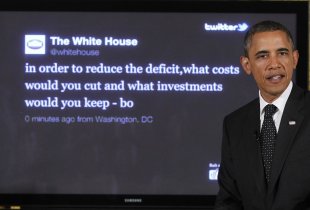HAVANA (AP) — A prominent New York rabbi and physician visited an American subcontractor serving a long jail term in Cuba and said the man is in good health, despite his family’s concerns about a growth on his right shoulder.
Rabbi Elie Abadie, who is also a gastroenterologist, told The Associated Press in an exclusive interview following Tuesday’s 2 1/2-hour visit at a military hospital in Havana that he personally examined Alan Gross and received a lengthy briefing from a team of Cuban physicians who have attended him.
He said the 1 1/2-inch growth on Gross’s shoulder appeared to be a non-cancerous hematoma that should clear up by itself.
“Alan Gross does not have any cancerous growth at this time, at least based on the studies I was shown and based on the examination, and I think he understands that also,” Abadie said.
Abadie said the hematoma, basically internal bleeding linked to the rupture of muscle fiber, was likely caused by exercise Gross does in jail. He said the growth ought to eventually disappear on its own.
Gross’s plight has put already chilly relations between Cuba and the United States in a deep freeze. The Maryland native was arrested in December 2009 while on a USAID-funded democracy building program and later sentenced to 15 years in jail for crimes against the state.
He claims he was only trying to help the island’s small Jewish community gain Internet access.
Gross’s health has been an ongoing issue during his incarceration. The 63-year-old, who was obese when arrested, has lost more than 100 pounds while in jail.
Abadie, a rabbi at New York’s Edmund J. Safra Synagogue, said Gross’s weight is appropriate for a man his age and height.
Photos that Abadie and a colleague provided to AP of Tuesday’s meeting with Gross showed him looking thin, but generally appearing to be in good spirits.
In one photo, Gross holds up a handwritten note that says “Hi Mom.”
“He definitely feels strong. He is in good spirits. He feels fit, to quote him, physically. But of course, like any other person who is incarcerated or in prison, he wants to be free. He wants to be able to go back home,” Abadie said.
Gross’s family has repeatedly appealed for his release on humanitarian grounds, noting his health problems and the fact that his adult daughter and elderly mother have both been battling cancer.
Jared Genser, counsel to Alan Gross, said late Tuesday that Rabbi Abadie is not Gross’s physician and he would like an oncologist of his choosing to evaluate him.
“While we are grateful Rabbi Abadie was able to see Alan, we have asked an oncologist to review the test results to determine if they are sufficient to rule out cancer. More importantly, if Alan is so healthy, we cannot understand why the Cuban government has repeatedly denied him an independent medical examination by a doctor of his choosing as is required by international law,” said Genser.
Gross and his wife recently filed a $ 60 million lawsuit against his former Maryland employer and the U.S. government, saying they didn’t adequately train him or disclose risks he was undertaking by doing development work on the Communist-run island.
They filed another lawsuit against an insurance company they say has reneged on commitments to pay compensation in case of his wrongful detention.
Separately, a lawyer for Gross has written the United Nations’ anti-torture expert, saying Cuban officials’ treatment of his client “will surely amount to torture” if he continues to be denied medical care.
Rumors have been swirling in U.S. media that Cuba might soon release Gross as a gesture of good will or in the hopes of winning concessions from the administration of President Barack Obama, but Abadie said that those reports appeared to be false.
“As far as I know there is no truth to it,” he said.
Abadie said he met with senior Cuban officials who expressed their desire to resolve the case “as quickly as possible,” but would not say specifically who he spoke with or what they offered.
“They claim that they are more than willing to sit at the table,” he said.
Cuban officials have strongly implied they hope to trade Gross for five Cuban agents sentenced to long jail terms in the United States, one of whom is already free on bail.
Abadie said Gross made clear that he does not want his case linked to that of the agents, known in Cuba as “The Five Heroes,” because he does not believe he is guilty of espionage.
But Abadie said Gross is hoping for a “constructive and productive” dialogue between U.S. and Cuban officials to resolve his case.
___
Follow Paul Haven on Twitter: http://www.twitter.com/paulhaven.
Latin America News Headlines – Yahoo! News











